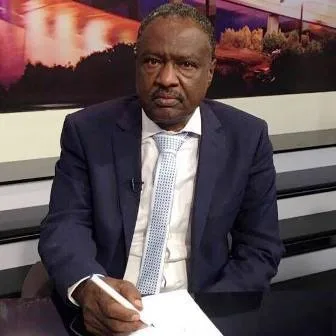Where Is the Minister of Foreign Affairs?

By Rashid Abdel Rahim
Since the announcement of the formation of the so-called Foundation Government six months ago — despite the significant difficulties surrounding its creation — this lengthy delay has not resulted in a viable government.
It was announced months ago, and reiterated in recent days, that this Foundation Government — intended to serve as a parallel government to Sudan’s official one — would be led by Mohamed Hamdan Dagalo (Hemedti), the commander of the RSF Militia. However, this presents the first major obstacle to its international dealings, as Hemedti is subject to sanctions imposed by the United States, which disqualify him from dealing with the United States or with any parties wishing to engage via the international Quartet, whose own activities have stalled, much like the Foundation Government itself.
This parallel government relies heavily — not only for its announcement but for its very existence — on the international community. Yet in its first step, it has placed an obstacle in its own path by appointing Hemedti. It added to this blunder by naming Abdelaziz al-Hilu as his deputy — a figure whose own record also includes strong, internationally controversial positions.
The appointments also included Mohamed al-Hassan al-Ta’ayshi as Prime Minister, thereby closing the door on any attempt by the Quartet to reconcile the Foundation Government with the “Soomood” (Resilience) platform, which has been pushing for Abdalla Hamdok as its candidate for Prime Minister. Hamdok remains the Quartet’s only choice for the role, with no alternative.
The appointments made by the parallel Foundation Movement have closed off many paths — both for its allies and for itself — leaving it unable to carry out any real governmental functions. It is already known that a “detriment government” has no army to defend itself against the armed forces, which continue to strike its proposed capital, Nyala. Thus, its only option for survival is to rely on the Rapid Support Forces as its army.
Prominent rebel figures were quick to reject this stillborn project, seeing themselves excluded from the appointments, which featured figures they neither respected nor considered to have contributed to the war effort. One of the movement’s top military and media figures, “Ya’jooj and Ma’jooj”, openly rejected this sidelining and sent a strong message to his leader, Hemedti, in protest.
The new government’s capital will not only face air strikes and military raids from the army — which persist alongside military support flowing into the city’s airport — but will also confront internal chaos, theft, and looting, fuelled by tribal and factional infighting.
The rebels lack capable governance cadres and have consistently proven unable to establish a functioning civil administration in all their previous attempts — in Gezira, White Nile, and Khartoum. Their control was wrested from them in the so-called “detriment government”, and “Lieutenant General Baqqal” was not reappointed. Instead, Faris al-Nour was named in his place, further reinforcing the Rapid Support Forces’ objection, as voiced by Ya’jooj and Ma’jooj, who criticised the appointment of someone with no wartime contribution.
Just as the announcement of their government stumbled and was delayed, so too has the Quartet, led primarily by the United States. After several postponements, a meeting has now been scheduled for the end of this month, only for it to find its allies in a state of disarray.
It is regrettable that amid this disarray — both among Sudan’s foreign-based enemies and international powers — Sudan still lacks a Minister of Foreign Affairs, and its government remains incomplete, with no clear plan to confront the Quartet, the “detriment government”, or the attempts to present it as a counterpart to the official Sudanese government. We may soon find the discourse shifting from talk of “two warring parties” to that of “two governments”.
Shortlink: https://sudanhorizon.com/?p=6673

